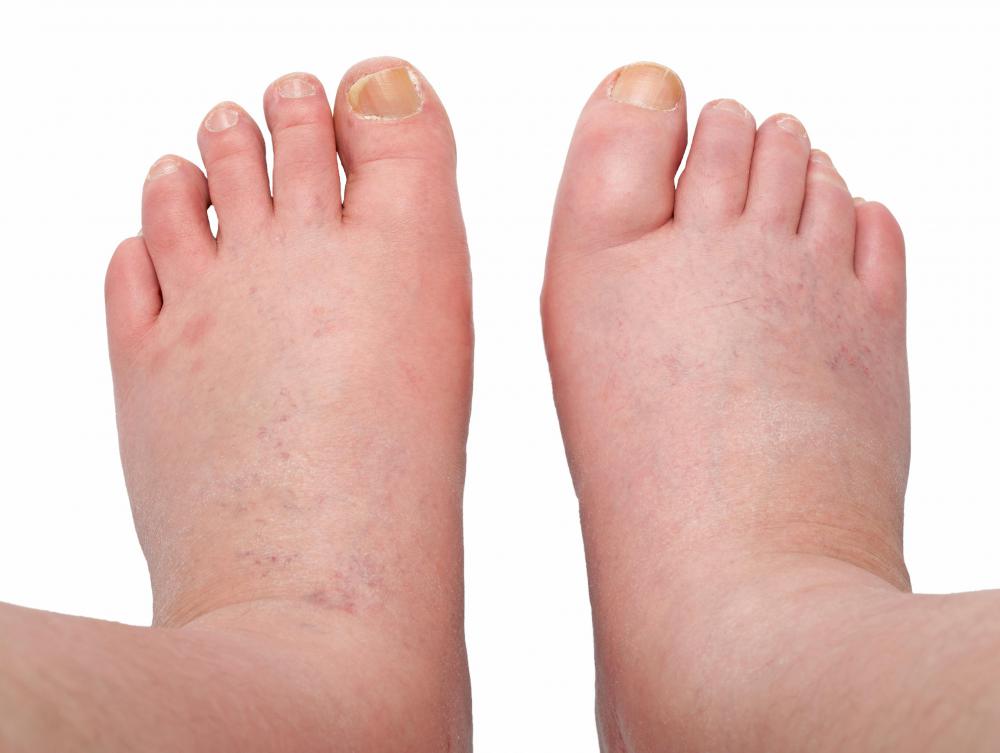At TheHealthBoard, we're committed to delivering accurate, trustworthy information. Our expert-authored content is rigorously fact-checked and sourced from credible authorities. Discover how we uphold the highest standards in providing you with reliable knowledge.
What is the Connection Between Hypertension and Edema?
Hypertension and edema are interrelated because high blood pressure is one of many conditions which may lead to edema. Although hypertension does not cause edema directly, it can put strain on blood vessels, making them more likely to leak. This leakage is the primary cause of edema.
Leakage of blood vessels results in the kidneys creating extra sodium and fluid in order to make up for the blood fluid loss. This creates greater blood volume, causing swelling, which in turn leads to even more blood loss through the damaged vessel or vessels. Hypertension can contribute to this cycle because higher than normal blood pressure may put too much pressure and strain on weakened blood vessels. By doing so, they may be more likely to leak.

Although hypertension and edema are related, there is often another underlying trigger or medical condition which leads to vessel leakage. These can include certain medications, thyroid disorders, heart problems, and a myriad of others. Conditions which can lead to hypertension or which may be caused by hypertension may also be linked to an increased risk of edema.

Pregnancy is one of the most common conditions which may lead to hypertension and edema. Pregnant women are prone to water retention and swelling, and this usually does not indicate a problem. That said, sometimes preeclampsia or eclampsia can become an issue. This condition causes extremely high blood pressure and severe swelling of the ankles, legs, feet, and hands. It is a serious medical condition that can be life-threatening without proper treatment.

Hypertension and edema are not always related. Edema can refer to swelling caused by any number of things, most of which are completely normal and not harmful. These can include minor dehydration, a woman's menstrual period, being at a high altitude, malnutrition, and oral contraceptives.
Although most cases of swelling are temporary and not serious, anyone who believes he or she may have hypertension or who is experiencing an increase in water retention and swelling, should consult a health care professional immediately. Most conditions can be successfully treated with early intervention. That said, edema may be an indicator of late stage high blood pressure, which is a serious medical condition which requires prompt treatment.
AS FEATURED ON:
AS FEATURED ON:














Discuss this Article
Post your comments